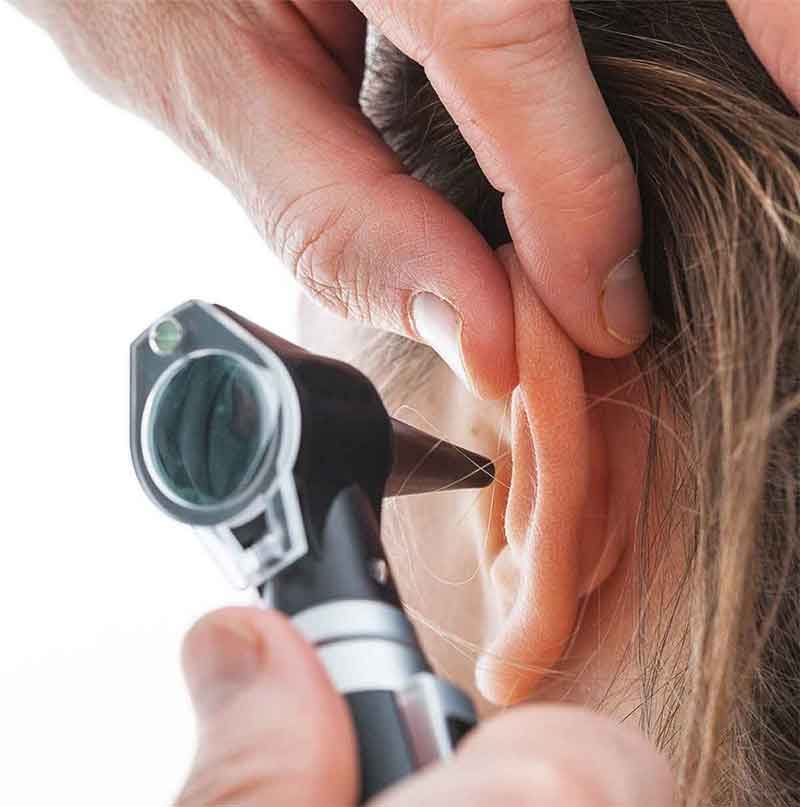Over-The-Counter Hearing Devices Are Not Equivalent to Traditional Hearing Aids
New research shows that even slight hearing loss can negatively affect your health and has been associated with cognitive issues, mental health, and even more frequent accidents and falls.
In spite of this, many people ignore their hearing loss and avoid getting treatment such as hearing aids. We often hear that hearing aids are just too expensive.
We get it. It is an investment. That’s why at The Hearing Center of Ohio we try to help clients afford the right hearing loss treatments for their individual needs.
Luckily, breakthrough innovations, improved legislation, and insurance updates have made hearing aids more affordable than ever.
One development is that lower-cost devices, including over-the-counter amplifiers, are now available in many pharmacies.
But buyer beware: Just because you can get a device over the counter, doesn’t mean you should attempt to treat your hearing loss on your own. Treating hearing loss is a science and starts with determining which frequencies you’re having trouble hearing.
Understanding speech, for example, relies on the clarity of sound which is influenced by the way it fits, what settings you use and whether it’s strong enough to treat your hearing loss. That’s why the first step should always be a hearing test.
Why Do I Need a Hearing Test to Treat Hearing Loss?
Over-the-counter hearing aids are not strong enough to treat some types of hearing loss. So to truly hear clearly again, you need to start the entire process with a hearing test. This will make sure you’re purchasing the right device for your type of hearing loss, and will help get the right “fit”. Hearing aids, and even some over-the-counter devices, can be programmed to your specific hearing loss. But unless you know which frequencies you’re having difficulty hearing, you can’t take advantage of this function.

Part of Hearing Is Blocking
Out Background Noise
“Cheap Hearing Aids” vs Traditional Hearing Aids
As mentioned earlier, research has linked untreated hearing loss with serious health conditions such as cognitive decline and depression. But researchers think it may affect your health and quality of life in other ways as well. Already studies have indicated that untreated hearing loss is associated with increased healthcare costs by up to 40%.
Some studies indicate that getting proper treatment helps to restore mental acuity and improve mental health. It pays to get a hearing test and make sure your treatment is appropriate to your needs.
Over-the-Counter (OTC) vs Prescription Hearing Aids
There are two categories of hearing aids on the market, so let’s compare the differences.
Over-the-Counter (OTC) Hearing
Aids Are they right for you?
Over-the-counter (OTC) hearing aids are a new category of hearing aids that can be purchased without a professional hearing evaluation. They are made for adults 18 years of age and older with perceived mild to moderate hearing loss.
Can OTC hearing aids help your hearing loss? Answer these questions to find out.
Hearing health
Check all that apply to you:
I am younger than 18.I hear differently out of one ear compared to the other.
I have had a sudden change in hearing in one or both ears in the past few months.
I think I might have a build up of earwax or something else in one or both of my ears.
I have taken over-the-counter or prescription medication that causes hearing loss in the past.
I have had chemotherapy and/or radiation in the head and neck area.
I have noticed drainage from one or both of my ears recently.
I experience pain or discomfort in one or both of my ears.
I have experienced balance problems or dizziness.
If you checked any one of the statements above, you should have a hearing evaluation before purchasing OTC hearing aids.
Hearing in different environments
Think about your hearing level, then check what best describes you. Check all that apply to you:
I have good to excellent hearing, I do not have problems hearing what people say.In noisy environments, I have good hearing, I can understand conversation.
In a noisy environment, I may have difficulty following or participating in conversations.
I have difficulty hearing a voice at normal volume.
I can only hear loud speech.
I can only hear a voice if it is directly in my ear.
In a noisy environment, I have great difficulty hearing conversations.
In a noisy environment, I cannot hear any speech.
I cannot hear any speech or loud sound.
If you checked any option in RED, an OTC hearing aid may NOT be right for you.